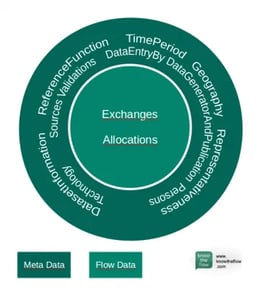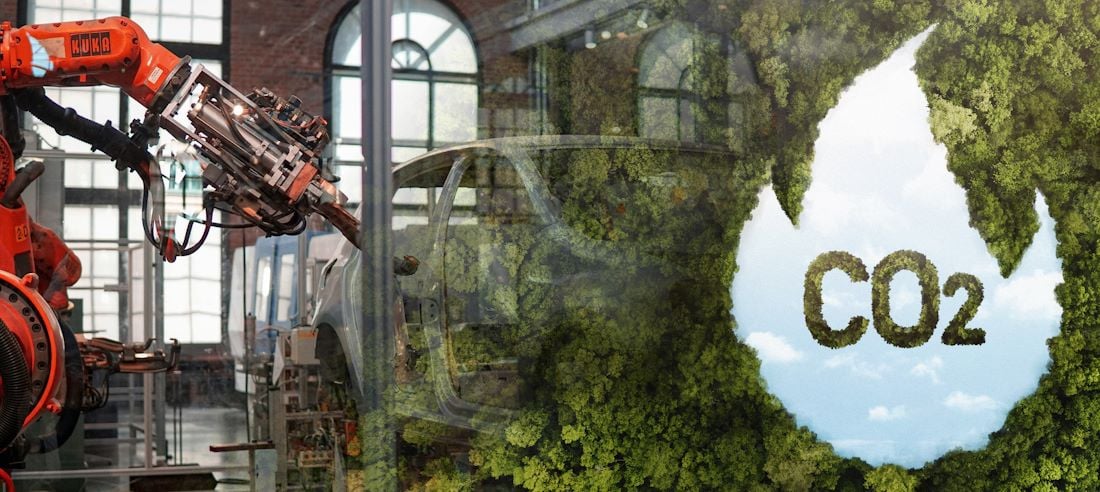Background databases can be very convenient when you assess all of the impacts a product or a service has on the environment. Such an assessment is widely known as a life cycle assessment (LCA); it analyzes everything – from raw material extraction through materials processing, manufacture, distribution, use, repair and maintenance, to disposal or recycling (see Wikipedia definition of LCA). Good databases allow an LCA be to carried out precisely, even when there is a lack of complete information.
Three Types of Data Sources
Generally speaking, there are three options for the data you use as input for an LCA. Either you know exactly where your raw material comes from, how it has been transported and which emissions were caused along the way – because you measured the data yourself – or you get the data from a supplier who assessed it already, e.g., for parts used in an assembly. Option number three: look it up. Probably someone has used the material or the energy source before and has added the information about it to one of the background databases. Looking up data in one of the infinite LCA databases may appear simple. However, the truth is particularly tricky. How accurate is the data? Where does it come from? Does it serve my purpose?
Swiss Tradition for LCA Databases
Switzerland, renowned for cheese fondue, an amazing public transport network and an outstandingly direct democracy, also has a long tradition of life cycle assessment. It reaches all the way back to the 1980s when sustainability pioneer EMPA first started a background database for packaging materials. EMPA is one of the six institutions that, among various consultants, contributes its data to ecoinvent. According to Roland Hischier, ecoinvent is the “most comprehensive and most transparent” background database available. It sums up around 4000 industry based data sets, providing the user with information from all of the following areas:
- energy supply
- resource extraction
- material supply (building materials packaging materials, metals)
- metal processing
- chemicals
- electronics
- agriculture
- waste management services
- transport services
Not Profit-Oriented
What ecoinvent has in common with most of the public process libraries, like ELCD is that it’s not profit oriented. License fees charged by the ecoinvent centre are fully reinvested into the maintenance and the advancement of the database.
A 68-page report on its methodology underpins ecoinvent’s claim for full transparency.
What is a Unit Process?
The key element in ecoinvent, the one that makes it unique compared to all the other life cycle databases, is the unit process. Unit processes account for the extraordinary consistency that makes all the inputs and outputs comparable. Unit process data sets are always scaled to the smallest possible process step. Every single material and every single service have exactly one data set. When data sets correspond to one another, e.g., steel processing that uses the energy mix of a certain country, they are then directly linked. The steel process data set does not have the energy mix information included in its data set, rather it much better “asks” the energy mix data set for the correct information every time it is being used. As you can imagine, this method makes updating the database incredibly comfy.
There is Data and There is Quality Data
On the other hand, it is not that easy: Every new data set entering the database needs the approval of a second person belonging to another institute, who checks its quality concerning mathematical correctness, completeness of the flows, satisfaction of quality criteria and integrity of documentation.
As you can see in the following illustration of a data set, ecoinvent’s data sets are composed of two flow entries plus 11 entries on the meta level.
The image represents one data set. In the light green center of the image, you can see an area that represents data exchanges. This is where the actual numerical values for material or emission flows are listed. If needed, also in the light green center, there are value allocation factors as well. The surrounding dark green areas, meta data, give further information about the numbers. The meta data provide information on the geographical validity of a value, for instance, or the technology used, as well as data sources, contact information and several more.
All in all, ecoinvent 2.2 currently lists more than 4000 data sets. While this is less than is offered by GEMIS 4.6 (more than 10,000), ecoinvent has a clear advantage in special areas like the chemical industry. GEMIS, for instance, lists only 110 chemicals, whereas ecoinvent has almost 500 in its database.
The release of ecoinvent v3 is expected in June, 2012. Be sure to recheck this blog from time to time, since we are going to take a close look at its new features. Promised.
![]()





